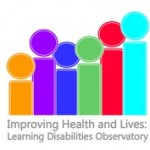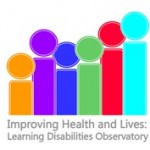
Today Ruby Jarvis presents two new reviews from the Mental Health Policy Research Unit, which summarise the adjustments that clinicians can make to improve mental health care for autistic children, young people and adults.
[read the full story...]
Today Ruby Jarvis presents two new reviews from the Mental Health Policy Research Unit, which summarise the adjustments that clinicians can make to improve mental health care for autistic children, young people and adults.
[read the full story...]
In her debut blog, Suzi Sapiets summarises a review exploring psychological treatment of depression in young people with neurodevelopmental conditions, which finds very limited evidence to help neurodiverse individuals. She also tells us that it’s time to #EmbraceComplexity and encourages people to join the Embracing Complexity Research Network.
[read the full story...]
Reed Cappleman critiques a recent study of IAPT (Improving Access to Psychological Treatments) practitioners’ experiences of providing therapy to people with intellectual disabilities.
[read the full story...]
The past few years has seen the publication of a number of national reports which have highlighted the often poor response to people with learning disabilities by health services, (‘Death by Indifference’, ‘Healthcare for all’ ‘Six Lives’ investigation) which led to a number of key recommendations for improvement, including the need for reasonable adjustments in [read the full story…]

UK law requires public services to make reasonable adjustments for disabled people following the Disability Discrimination Act (1995) and the Equality Act (2010), which does not cover Northern Ireland. For people with physical disabilities these have predominantly focused on the environment, whilst for people with a learning disabilities it requires more commonly clear explanations and [read the full story…]

We have posted previously about issues relating to cancer screening in people with learning disabilities and the impact this has on early identification of signs and symptoms and consequent timely treatment. The researchers from the improving health and lives learning disabilities public health observatory (LDPHO) were interested to know whether reasonable adjustments were being made [read the full story…]

Normally here at WELD, we are in the business of reporting research findings and drawing attention to the evidence. However, two new research projects caught our eye this week as they are to do with subjects we have previously posted about. Both projects are looking for people to get in touch with their experiences, so [read the full story…]

Public sector services have a legal duty to provide ‘reasonable adjustments’ for people with learning disabilities. This might mean removing physical barriers to access which is clearly important, but also includes the removal of barriers that exist as the result of the way the service is organised or delivered, ensuring that policies, procedures and [read the full story…]